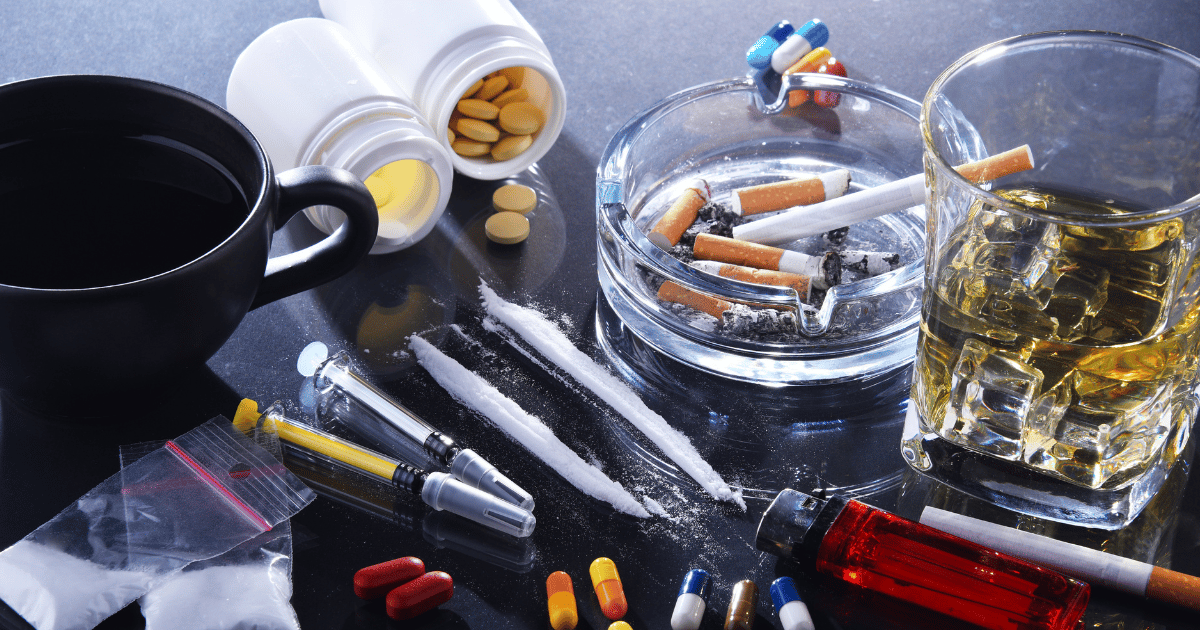Addiction and trauma are both incredibly tough things to deal with. And unsurprisingly, many people have both.
Neither is pleasant to talk about, but to be happy and healthy, you need to address these issues. Otherwise, they can fester and bleed into other areas of your life. As a result, you may push away those who care about you, which can easily lead to isolation and spiraling.
However, learning about addiction and trauma can be a step in the right direction toward recovery. So read on to learn more about both these conditions.
About Trauma
Trauma is any distressing event or experience that overwhelms your ability to cope. This can leave you feeling helpless, frightened, and emotionally wounded.
It’s possible to go through trauma based on various situations; many people mistakenly think it has to be a serious life event, such as fighting in a war. For example, many people suffer from trauma from physical or emotional abuse, neglect, accidents, and natural disasters. Basically, any event that disrupts your sense of safety and well-being can cause trauma.
About Addiction
Addiction is considered a compulsive dependence on a substance or behavior, even if negative consequences arise. For most, addiction has to do with drugs and alcohol. However, you can also be addicted to things like gambling, gaming, and shopping.
Addiction is a complicated matter because there are both genetic and environmental factors at play. In many cases though, people turn to addiction as a way to cope with emotional pain, stress, or difficult experiences. Their addictions become a way to self-medicate and escape.
The Links Between the Two
As we’ve said earlier, numerous people suffer from both addiction and trauma. Here are the links between the two so you can better understand why.
Coping Mechanism
People who have experienced trauma might use addiction as a coping mechanism. For instance, using substances or drinking alcohol can numb emotional pain or distress.
Substance use or indulging in addictive behaviors can temporarily provide relief from traumatic memories or overwhelming emotions.
Self-Medication
On that note, because addictive behaviors can provide relief, many people with trauma end up using them as self-medication. These behaviors can suppress symptoms of trauma-related conditions, such as post-traumatic stress disorder (PTSD), anxiety, or depression.
Often, they’ll feel that drugs or certain behaviors help them manage their emotional states. Unfortunately, these things can become a crutch in helping them manage their everyday lives.
Neural Changes
Traumatic experiences can lead to changes in your brain. More specifically, they can alter your brain’s reward and pleasure centers.
As a result, you can become more susceptible to developing addictive behaviors. This is because substances and addictive activities can provide an enhanced sense of pleasure and relief.
Risk Factors
Trauma can contribute to the development of addiction since it can increase certain risk factors. For instance, it can lead to low self-esteem, poor emotional regulation, and difficulties forming healthy relationships.
Someone who suffers from one, some, or all of the above will be more susceptible to addiction. It can provide an outlet and coping mechanism for difficult situations.
Vicarious Trauma
Vicarious trauma isn’t as commonly explored, but it does exist. This can happen to people who are indirectly affected by trauma, such as healthcare professionals, first responders, or people living with someone who’s experiencing trauma.
Witnessing traumatic events or constantly supporting those who have experienced trauma can lead to vicarious trauma. This can potentially fuel addiction as a coping mechanism.
Substance Use as a Catalyst for Trauma
On the other hand, some people may develop addictions without prior trauma. For example, someone may start using drugs recreationally, or they might start drinking out of boredom.
Developing an addiction puts people more at risk for accidents, violence, legal problems, or strained relationships. These all have the potential for trauma, which can then further perpetuate the cycle of both.
How to Get Help
Dealing with one or the other can already be challenging enough. It’s rare that anyone can handle addiction and trauma on their own, and they can only do it for so long before breaking.
The reality is, addressing the link between these things requires comprehensive treatment. You have to tackle both the addiction itself and the underlying trauma for treatment to be effective.
Thankfully, there are several ways you can get addiction treatment and trauma therapy. Here are a few options.
Inpatient Rehab
Inpatient rehab is where you live at a facility for a predetermined period so you can immerse yourself in treatment. This puts you in a positive and healing environment where you can focus on recovery and sobriety.
You’ll attend different types of therapy, including individual, group, and alternative therapies. You’ll discover and address traumas, then learn effective tools for dealing with them and addiction triggers.
Outpatient Rehab
Outpatient rehab for drugs, alcohol, and behavioral issues is pretty much the same as inpatient rehab. But the main difference is that you don’t have to stay overnight, and instead, you’ll check in for appointments. This is less disruptive to your daily life and is more affordable too.
However, if you don’t have a supportive home environment, it’ll be easy to relapse.
Address Addiction and Trauma
Addiction and trauma can drastically affect your life, and you deserve to be the best version of you. While it can be uncomfortable or even painful to talk about these things, you’ll come out on the other side as a stronger person.
Once you’ve conquered addiction and trauma, all aspects of your life will start improving. Sobriety will give you a second chance at a bright future.
Keep reading our blog page for more on health and fitness.
You may also like
-
Buy Shilajit Online: A Modern Path to Ancient Wellness
-
The Best Shilajit Brands: A Complete Guide to Quality, Purity & Performance
-
Unlocking Nature’s Secret: The Best Place to Buy Shilajit
-
Unlocking Nature’s Ancient Secret Power of Himalayan Fresh Shilajit
-
Breast Augmentation in Dubai: A Journey Toward Confidence and Contour

